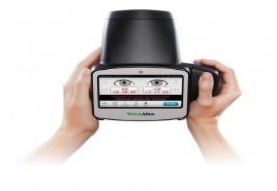- Home
- Health Topics
- Public Health Services in Schools
Public Health Services in Schools
Public Health supports schools to improve the health and well-being of students and staff, both in the classroom and within the school community.
The Haldimand-Norfolk Health Unit has an interdisciplinary team of health professionals that work together to service our school communities.
Each elementary and secondary school in Haldimand and Norfolk have a Public Health Nurse assigned to support the school with health initiatives.
Public health nurses (PHNs) work with schools to enhance the physical, mental, and social health of the entire school community by:
- building relationships
- collaborative planning
- engaging students, staff and parents
- developing community partnerships
Universal support services offered to all schools in Haldimand and Norfolk counties include:
- Provide annual overview of HNHU services coming into school (e.g. immunizations, dental screenings, vision screenings, etc.)
- Online classroom supports with lesson plans, presentations and resources
- Link students and families to resources in the school and community
- Provide support for infectious diseases in schools (including COVID-19)
- Provide sexual health and pregnancy related information and services in Grand Erie secondary schools
- Liaison with services provided by the Haldimand-Norfolk Health Unit (HNHU):
- Elementary: dental screening, vision screening, grade 7/8 immunizations and immunization suspension process
- Secondary: immunization catch-up clinic, food inspections
- Provide online resources that increase parent awareness of HNHU programs and community services that support child and youth health. These resources can be printed by schools for their parent events:
- Welcome to Kindergarten
- Meet the Teacher
- Parent Open House
- School Council Meetings
Public Health Nurse services for identified focused schools:
- Collaborate with schools to assess and prioritize health issues.
- Work with:
- School based mental health leads and teams
- Students and student groups
- School councils or other care givers or community groups within the school
- Recommend best-practices for action i.e., policy, programs
- Co-create action plans to address health issues with staff, students, and community
- Assist with the development, implementation, and evaluation of healthy school initiatives. Assistance may include: Evidence, Surveys, Policies, Programs, Training and Facilitation, Curriculum Resources/Consultations, Community Resources and Partnerships.
- Promote and provide guidance on resources from School Mental Health Ontario, OPHEA, PREVNet
- Consult with school administrators and staff on guidelines and policies such as:
- Safe and Accepting Schools
- Equity and Inclusion
- Food and Beverage
- Daily Physical Activity
- Increase parent and family engagement with HNHU programs and services by providing support for:
- Welcome to Kindergarten
- Meet the Teacher
- Parent Open House
- School Council Meetings
To contact your school's public health nurse, call 519-426-6170 ext. 3285 or email [email protected].
Our dental team visits elementary schools in Haldimand and Norfolk Counties every year to check up on students’ oral health in accordance with the Oral Health Protocol, 2018 and the Health Protection and Promotion Act, Regulation 570.
Prior to the screenings, letters are sent home to the parents/guardians of those students in the grades being screened – depending on the school, this could include JK, SK, Grade 2, Grade 4 and Grade 7.
How does the screening work?
- The screening is a quick look in your child’s mouth by a Registered Dental Hygienist using a dental mirror.
- A different sterilized mirror is used for each child. The hygienist will be wearing a surgical mask and practicing appropriate hand hygiene between each child.
- Our school screenings do not replace any needed visits with your family dentist - If you have a current concern about your child’s mouth please follow up with a dentist, do not wait for the school screening visit.
Why do we screen students?
- The screening is to let you and your child know if there is any concern that may indicate a dental problem that could require a follow up visit to the dentist.
- Public health will help to cover the cost of the dental visits if needed.
- These school screening visits allow public health to collect data on the dental health of each school.
What happens next?
- Every child screened will receive a “report card” from the dental hygienist to communicate the findings.
- If the screening identifies a concern that could indicate a dental problem, the report card will outline the appropriate next steps.
If you do not wish for your child to take part in a scheduled dental screening clinic at your child’s school, please complete the opt out form found here, or call HNHU at 519426-6170 ext. 3293 at least one week prior to your school's scheduled clinic date.
If your child is home-schooled but you would still like to access the dental screening, this can be scheduled at the Haldimand-Norfolk Health Unit's Simcoe or Dunnville office location.
Please contact the Haldimand-Norfolk Health Unit Dental Program at 519-426-6170 ext. 3293 or [email protected] with any questions or concerns.
Routine School Vaccines
If your child is in grades 7 to 12 this school year, they are eligible to receive their routine school vaccines or complete the vaccine series if they have already started them. These vaccines include Hepatitis B, Meningococcal ACYW-135, and Human Papillomavirus (HPV).
Please note: Hepatitis B and HPV vaccines require two doses (minimum six months apart) to fully protect against the disease. Meningococcal ACYW-135 is provided as a one-time dose.
As a result of school closures during the COVID-19 pandemic, the vaccines were not offered at school. If you wish to have the vaccines administered at your family doctor’s office, the vaccines are available for your doctor to order from Public Health.
Report vaccinations
Parents, please note that all children attending school in Ontario are required by law to report their vaccination status to the local health unit.
Please report all vaccinations received from your health care provider or out of province to Public Health. Physicians and schools are not responsible to provide your child’s vaccination information to the health unit.
There are several ways to report your child’s immunization record, including online, via phone, email or fax. To submit immunization records to HNHU online, or for more info about other methods of reporting your child's immunization records, please visit https://hnhu.org/immunization-reporting/.
Visual health is an important part of a child’s overall health and well-being. Proper vision is important for a child’s movement and coordination, independence, play and learning. If left untreated, vision problems may become serious and prevent a child from reaching their full potential.
The Haldimand-Norfolk Health Unit is partnering with our local Lions Clubs to offer school-based vision screening to senior kindergarten (SK) students according to the Child Visual Health and Vision Screening Protocol, 2018 of the Ontario Public Health Standards (2018).
What is vision screening?
Vision screening is a series of three short and simple tests that can identify some risk factors for certain vision disorders.
It is a free service that is offered in the school-setting to SK students on a yearly basis.
Vision screening does not replace the need for a full exam by an eye doctor on a yearly basis or whenever there is a concern. Children and youth (0 - 19 years old) are eligible for a free exam by an eye doctor every 12 months through OHIP (Ontario health card). To find a local optometrist, please visit findaneyedoctor.ca.
Why is vision screening important?
Young children may not know they have a vision problem because they assume everyone sees like they do. Vision screening is an effective and non-invasive way to identify children with potential vision problems and refer them to the eye doctor for a free comprehensive eye exam. It is important for vision problems to be caught and treated early so that children can see and learn to the best of their ability.
What vision screening tests are used?
The following three (3) vision screening tests are used:
- HOTV visual acuity chart (letter book) – this test measures sharpness of eyesight/clarity of vision.

- Randot Preschool Stereotest (3D picture book) – this test measures the ability to recognize depth.

- Autorefractor (automated camera) – this test automatically screens for some refractive errors such as near and farsightedness.

If my child wears glasses, do they need to be screened?
Children wearing glasses will still be screened using the HOTV visual acuity chart and the Randot Preschool Stereotest. They will leave their glasses on for these tests.
How will parents be notified that vision screening is being offered at their child’s school?
Parents and guardians of children in SK will receive a notification that the screening is taking place at their child’s school at least 10 business days in advance of the screening date.
What happens after a child has been screened?
Parents and guardians of all children screened will receive a Parent Notification Form that notes their child’s overall result (i.e. PASS or REFER) with recommended next steps.
Parents and guardians of children screened whose overall screening result is a REFER, will receive a Reminder Letter within 20 business days of the screening date.
What is a comprehensive eye exam?
A comprehensive eye exam is a full assessment of the eye and vision system. This service includes:
- Reviewing child’s health history and the family history of eye problems
- Checking visual acuity and 3D vision
- Checking eye alignment
- Checking eye focusing ability
- Checking eye health (i.e. allergies, infections)
- Identifying if the child is meeting visual developmental milestones
- Determination of need for eye glasses or other treatment (i.e. eye drops, vision therapy, a referral to a healthcare provider, etc.)
Vision screening cannot diagnose vision disorders, and it is NOT a replacement for a comprehensive eye exam by an eye doctor.
How often should an infant or child go to the eye doctor?
The Ontario Association of Optometrists recommends that all children have their first eye exam at 6 months old, again at 3 years old, and every year after that.
Children and youth (0-19 years old) are eligible for a free exam by an eye doctor every 12 months through OHIP (Ontario health card).
For more information on exams for infants and children, please visit the Ontario Association of Optometrists website.
